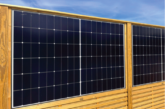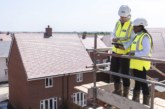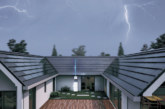An increase in demand for specialist glazing signals how the building design industry is responding to the climate crisis, according to new research from Pilkington United Kingdom Limited, part of the NSG Group.
The glass giant’s research of 142 building design professionals found that 61% of specifiers have seen a spike in demand for solar control glass. This comes as the industry awaits new building regulations, which two-thirds (66%) of specifiers attributed the increase in demand to.
Aside from regulations driving demand, 62% stated that they believe climate change is driving the growing need for specialist glazing to keep buildings the correct temperature and reduce their carbon footprint, with three quarters (76%) of specifiers also conscious of the Government’s impending 2050 net zero target.
Two thirds of specifiers said they were aware of upcoming Part L changes (66%), which will change the way architects must design new dwellings to conserve fuel and power, requiring a higher performance of thermal insulation from glazing. Preparation for the changes was signalled by more than half (51%) of specifiers reporting increased demand for thermal insulation glass.
Phil Brown, European Regulatory Marketing Manager at Pilkington UK said: “Specifiers are acting now to equip buildings with the high-performance glazing that can help them to deliver sustainable energy performance, while making developments more comfortable year-round without the need for heating and cooling systems.
“This proactivity is encouraging to see ahead of new regulations coming into play over the next year that are expected to drive this trend further. Fresh momentum behind solar control and thermal insulation specifications reflects developers growing sustainability commitments, and demand from occupants for lower energy costs.
“We’re working closely with the glass and glazing supply chain to ensure building design professionals have the right specifications of glass to deliver the best energy performance – often specialist glass that delivers both solar control and thermal insulation performance.”









